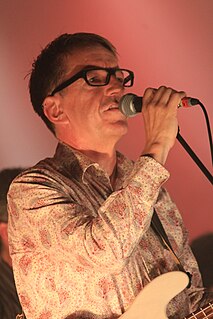Graeme Hunter Kelling was a Scottish musician and the original guitarist with the Scottish pop band Deacon Blue.
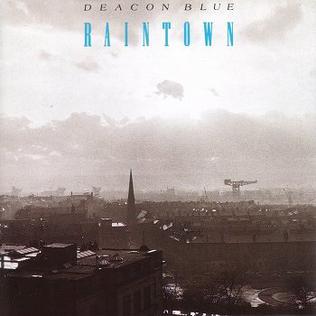
Raintown is the debut album by Scottish pop band Deacon Blue. The album, written largely by lead singer Ricky Ross, was released in the United Kingdom on 1 May 1987. It proved a commercial success and has to date sold around a million copies, peaking in the UK Albums Chart at no. 14 and remaining in the charts for a year and a half.

When the World Knows Your Name is the second album by the Scottish rock band Deacon Blue. It was released in 1989 and attained the number 1 chart position in the UK Albums Chart.

Fellow Hoodlums is the third studio album by the Scottish rock band Deacon Blue, released in 1991. It includes four singles; "Your Swaying Arms", the Top 10 hit "Twist and Shout", "Closing Time" and "Cover from the Sky".

Whatever You Say, Say Nothing is the fourth studio album by Scottish rock band Deacon Blue, released in 1993. Changing from producer Jon Kelly to the team of Steve Osborne and Paul Oakenfold, this album presented a change in musical style for Deacon Blue. While the band's songwriting remained based in rock and blues, many of the tracks moved into alternative rock territory in their presentation.

Ooh Las Vegas is a compilation album by the Scottish rock band Deacon Blue. It contains B-sides, unreleased tracks, and songs written for William McIlvanney's television play Dreaming.

Riches is a limited edition compilation album that was temporarily included with the Raintown album by the Scottish rock band Deacon Blue, starting in February 1988. Only 20,000 copies were made.

Our Town – The Greatest Hits is the first greatest hits compilation album by the Scottish rock band Deacon Blue. The album reached the top spot of the UK Albums Chart in May 1994 for two weeks, and has been certified Platinum. It was also their second and final number one album to date. It is also notable for being the 500th number one album since the charts inception in 1956.
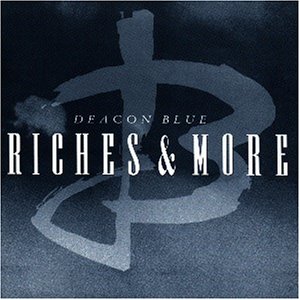
Riches & More is a compilation album for the Scottish rock band Deacon Blue. It combines the Riches limited edition bonus album that was temporarily packaged with copies of Raintown with the Four Bacharach & David Songs EP. However, this compilation does not include the piano version of the song "Raintown", which was the fifth track on the initial release of Riches.

Homesick is a studio album from Scottish rock band Deacon Blue. Released in May 2001, it was the band's fifth studio album. It was their final album to feature guitarist Graeme Kelling, who died in 2004.

The Very Best of Deacon Blue is a greatest hits compilation for the Scottish rock band Deacon Blue. It is composed of singles and album tracks from the band's previous albums, plus two B-sides, "Indigo Sky" from the "Hang Your Head" single, and "When You Were a Boy You Were a Beautiful Boy" from the "Everytime You Sleep" single.

Singles is a singles compilation by the Scottish rock band Deacon Blue. It contains three new tracks, "Bigger than Dynamite", "Haunted", and "The One About Loneliness", that were recorded by the band in March, 2006.
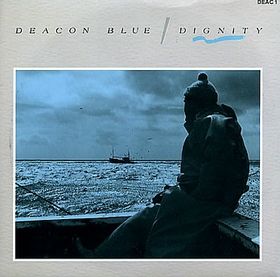
"Dignity" is a song by Deacon Blue, which was the band's first official release. It is one of their most popular songs and it is usually played as the final song at concerts. It received the most public votes for the 1980s songs in the Scotland's Greatest Album contest run by STV in 2011, and was featured on the 12 track compilation. It was also sung at the closing ceremony at the 2014 Commonwealth Games held in Glasgow.

"Chocolate Girl" is the fourth song released as a single from the album Raintown by the Scottish group Deacon Blue. The single version differed from the album version of the song. It is a remix by the American mixer Michael Brauer, which adds a longer musical interlude in the middle of the song and gives greater emphasis to B.J. Cole's pedal steel guitar in parts of the song.
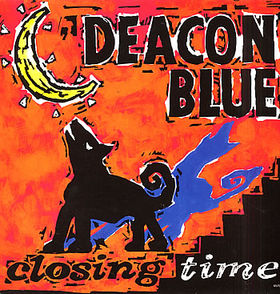
"Closing Time" is the third single from the album Fellow Hoodlums by the Scottish rock band Deacon Blue. It peaked at No. 42 in the UK Singles Chart.
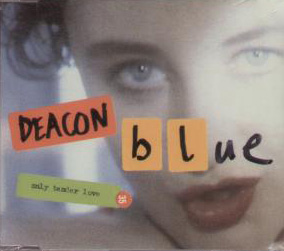
Only Tender Love is the third single from Deacon Blue's album Whatever You Say, Say Nothing. The song on the single is an edited version of the album track. The track reached No. 22 in the UK Singles Chart in May 1993.
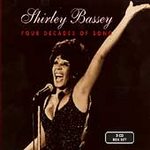
Four Decades of Song is a three-CD compilation from Shirley Bassey issued in 1996. This set features 54 songs recorded between 1959 and 1993. In 2008 EMI repackaged and retitled this boxset as Shirley Bassey The Collection; the new version had six extra tracks.





